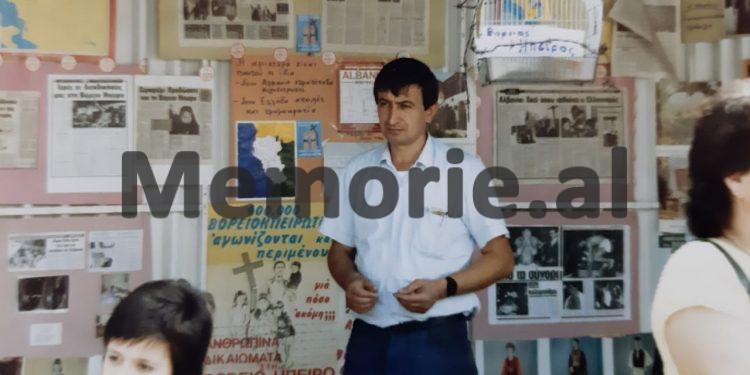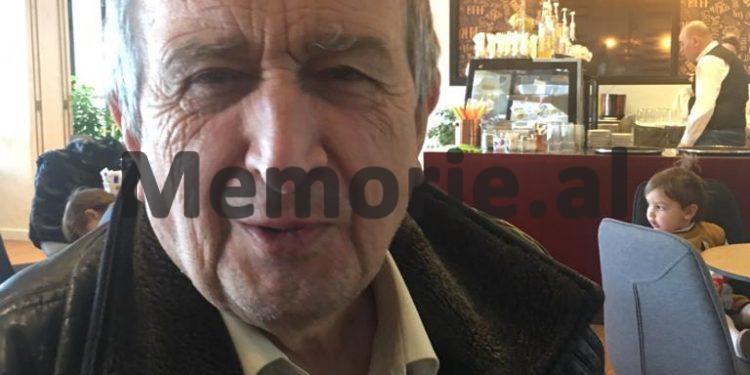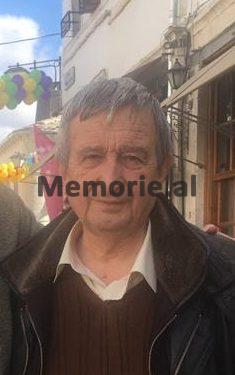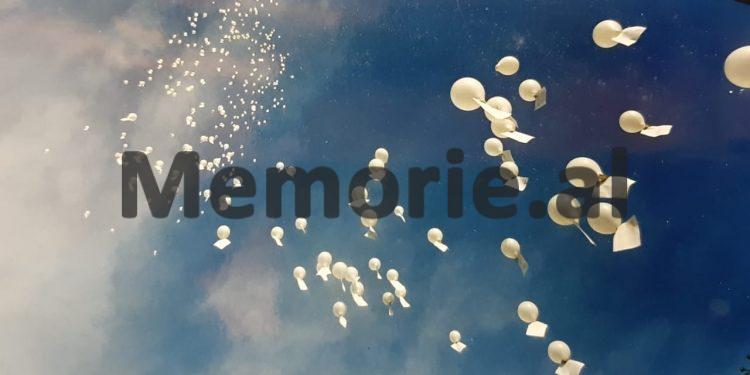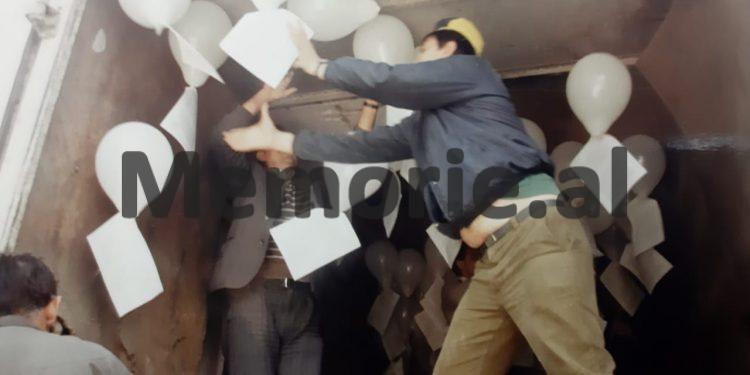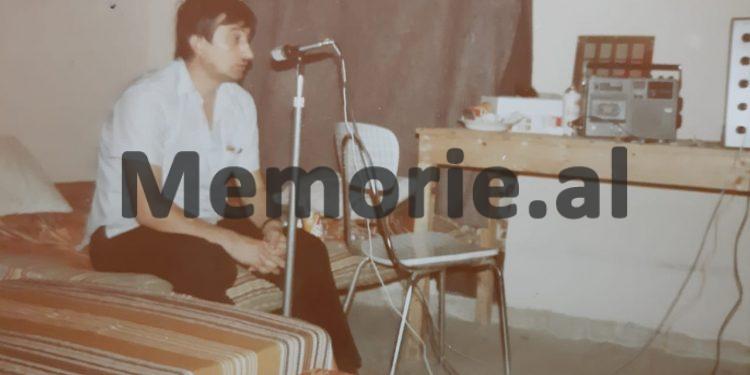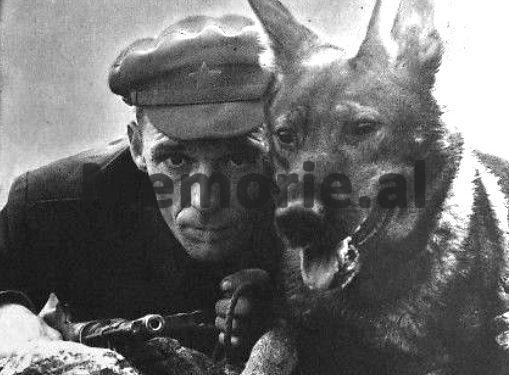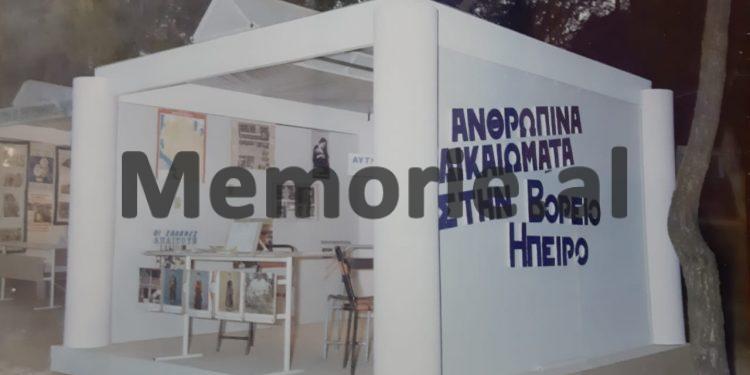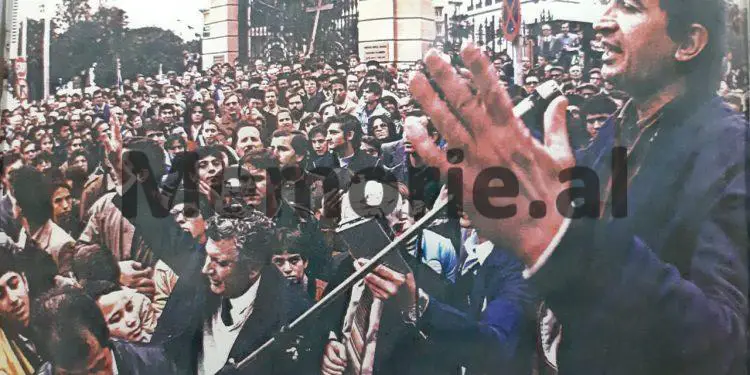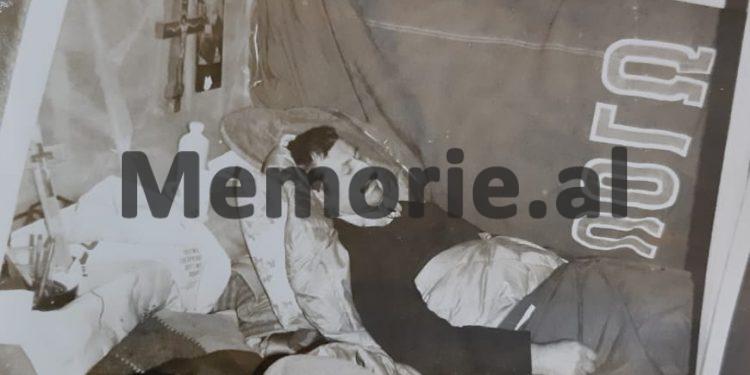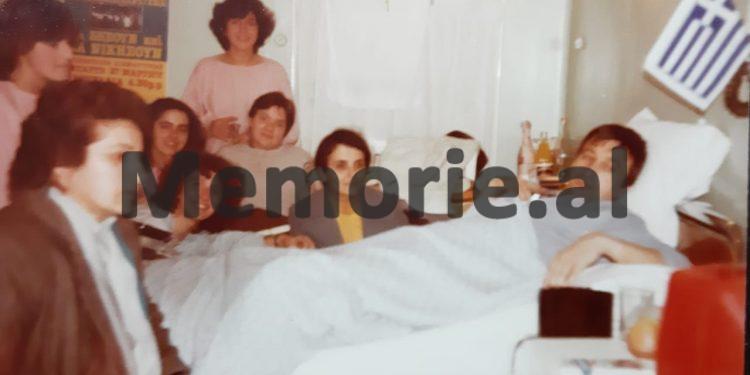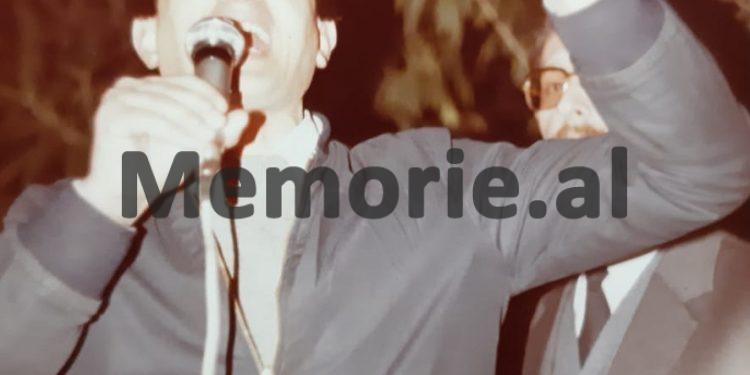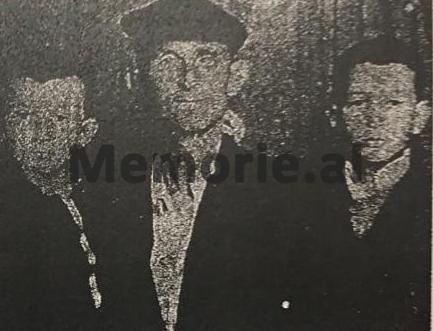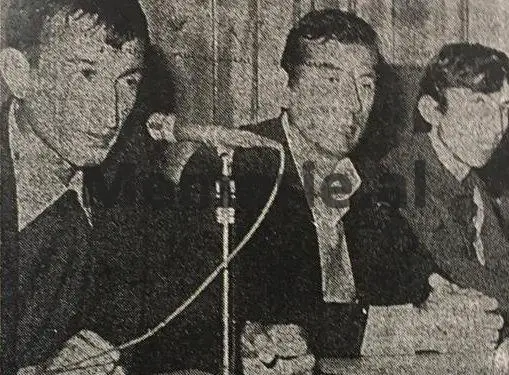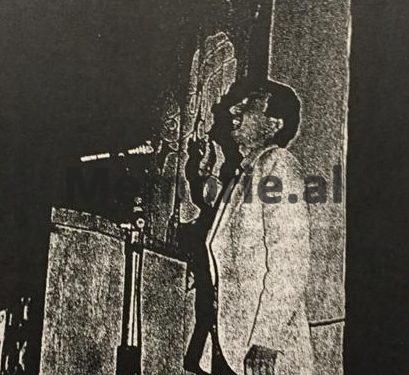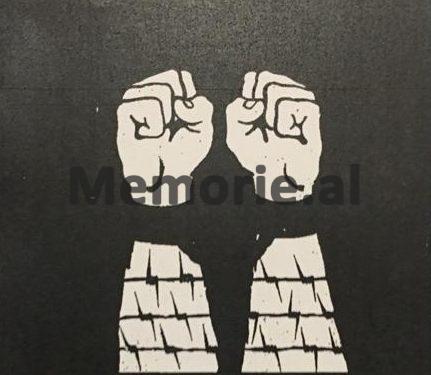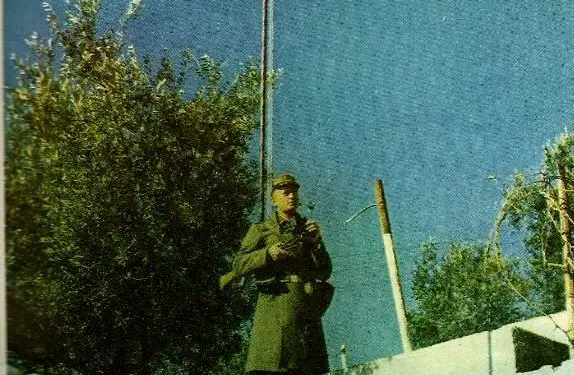Dashnor Kaloçi
Memorie.al publishes some archival documents extracted from the Archive of the Ministry of Foreign Affairs in Tirana and the Information Authority of the Files of the former State Security, which are part of a voluminous file which deals with the rare and unknown history of Ilia Lekë, originally from the village of Glinë in the Greek minority of Gjirokastra, whose family had been living in exile in Myzeqe villages since 1945, and his father, Theodhoriu, had been arrested since 1951 and were serving time in camps and prisons. accused of being a “Greek intelligence agent”.
Attempts by the State Security to recruit Ilian and then arrest him, and Ilias’ escape together with his brother Kriston and their uncle in Greece, where after some threatening letters that Ilia made to Enver Hoxha, Ramiz Alia, and Adil Çarçan, who was asked to get his father out of prison and his wife and son, to allow him to come to Greece, the three of them went on a hunger strike in front of the Albanian embassy in Athens, which lasted until 1984.
The strike sparked major diplomatic tensions between the two countries, as it sensitized not only the Greek parliament and government in Athens but also the Greek press and some ultra-nationalist parties and Vorio-Epiriot chauvinist circles led by Metropolitan Sevastianos, who exploited it. for their interests, as well as Ilia Leka’s speeches in the European Parliament and the American Congress, for the violation of human rights in the communist regime in Albania, until they forced Enver Hoxha to come out and publicly declare: “I say responsibly to the people Greek brother that in the Albanian prisons there are only 46 citizens from the Greek minority and only 4 of them for political crimes ”, as well as Ramiz Alia to release Theodhori Leka from prison in 1989, allowing him to go to Greece forever.
After the publication in four consecutive issues of a series of archival documents issued by the Archive of the Ministry of Foreign Affairs in Tirana, which has long been with the initials “Too Secret” and already declassified, where it is a correspondence of the Albanian Embassy in Athens with the Ministry of Foreign Affairs in Tirana in 1982-’84, regarding the Albanian citizen, Ilia Theodhor Leka, originally from the village of Glina in Gjirokastra and living in the villages of Myzeqe, where they have been interned since 1951, as well as Ilias’ escape to Greece in 1982 (along with his brother and uncle), after they had previously arrested their father, where they went on a hunger strike in front of the Albanian embassy in Athens for nearly three years, raising public awareness. locals, political parties, parliament, the Greek government, various organizations, etc., we conducted an exclusive interview with Ilia himself, where he sheds light not only on those documents that have already been made public by Memorie.al, but also on his entire history and that of his family, from 1945 to the present.
follows from the previous number
Mr. Ilia, did you meet Lenka?
When I went to the District Party Committee in Lushnja, I went in front of Lenka Çuko who was the first secretary, guarding her as soon as she got out of the car and shouted: ‘Comrade Lenka, friend Lenka, I have two words’, and they immediately came to me. the Security officers who guarded it and caught me as they remembered what I was going to do. While they were pushing me and I was arguing with them, she said, “Leave it, leave it.” They escorted me to her, and I said, ‘Comrade Lenka, we are interned. If you don’t want us to work, let us go to Greece.’
What did she say to him?
She was stunned by those words and said, “Who are you talking to like that?” “I’ll tell you,” I said. “I have worked for the Albanian state for 22 years. I went to Mechanical School, at night in Fier, and they left me without a job because I will live, will I die ?! “The Internal Affairs Department knows that,” she told me. I turned to them, saying, “Those of the Lushnja Internal Affairs Branch wanted to spy on me!” “What do you mean, take me,” he told me, “these are state secrets.”
How did you respond?
“I know them,” I told him because when I went to work those days, they brought me a Hamit T. who was from Berat. He went as a soldier and fled to Yugoslavia, but they sent him back to Albania and he ended up in prison. He stayed for a few years in Spaç where he did the work of a barber and when he came out, they brought him where I worked as a mechanic in Fier, where from time to time he provoked me by saying: “We have no bread, there are no boots for us here. workers ”, etc.
Did you say that to Lenka?
I did not tell her that time was running out, but I was about to tell her when she told me that those things were secret. So I wanted to tell him that the Home Office had put provocateurs on me to arrest me.
What did Lenka Çuko tell you at the end of the conversation?
She said: “We know that you are a good mechanic, but run to the Chairman of the Internal Affairs Branch because they will put you to work” and that’s how we parted. But I knew what awaited me, that Nikolla Binjaku, the Chief of Security in Elbasan, told me. But we were spending the “last bullet,” as they call it, complaining to Lenka, hoping, albeit in vain.
Where did you meet the Chief of Security, Nikolla Bunjaku?
Nikolla and I met by chance on the train when I was making my way from Libofsha to go to Elbasan when I was working at the Oxygen Factory of the Metallurgical Plant and during that time he also came to go to work. It often occurred to us to make the road together on the train, and once, he threw me as far and wide as a paid associate, but I bluntly told him, ‘I don’t deal with these jobs, I have 1000 other worries’. And he didn’t talk to me anymore, but he continued to respect me as before.
Going back to the event with your father, how much did they punish Theodhori, and with what charges?
When the trial took place, the father was initially sentenced to be shot but was later returned to prison for 25 years. The charges were “Crimes against the state and agitation and propaganda.”
Where did they send him to serve his sentence and did you and your family go to meet him?
After being convicted, my father was taken to Ballsh and from there to Spaç, where I went every month and brought him food.
While your father was in prison, did the State Security pressure continue on you?
Yesss, of course, the Security Service regularly pressured me to become their agent, but I refused, knowing that once they took advantage of me, they would squeeze me like a lemon and put me in jail. I don’t remember going to prison once in Spaç or Ballsh to meet my father so that I wouldn’t have Security people following me and provoking me. Once when I was in a SAURREL car which stopped on its own without me raising my hand, and I was going to Spaç to my father, a Security officer who was in the first place (I recognized him by the clothes and the pistol that appeared on his belt) was talking. with the driver cursing the government and waiting for me to enter and I in conversations with them. But I was obsessed with those things and pretending to be asleep or not. What can I say, various provocations?
But after the letter you made to Ramiz Alia, nothing changed, so did the attitude that the state was holding towards you and these Security pursuits soften at all?
Not only did it not soften, but it got worse, much worse. I was initially expelled from the faculty of “Mechanical Engineering” that had opened in Elbasan as a branch where I finished the first year and I was very good from 20 people who were in the course, I was the first. (I was excellent as a mechanic, after I left the army with the VI category, which was given to me by Thanas Hysi, an engineer from Elbasan, when he was a soldier in Bestrovë, Vlora in 1969-71, with Commander Ilo Myzeqari). I was not told why I was not allowed to continue, but I was asked for some documents, which they knew I could not complete. Meanwhile, after I had sent the letter to Ramiz Alia, I sent a letter to Enver Hoxha, explaining it in detail, and a copy of it was sent to the Glina of Gjirokastra for verification by the Central Committee of the ALP. This is what Spiro Lengo told me when he came and met me, as he was tasked with pursuing the issue of my letter.
What verification would take place in Glina, Gjirokastra, when you left in 1951?
After my father was arrested, letters were sent to me to see where I had committed a crime and to arrest me directly, without getting tired of finding witnesses. Seeing and verifying the letters, they had gone to Glina to see a feature that had once been given to me by those of the People’s Council, and they, out of fear, had said that they had not given it to me, but that document must have been forged by me. Ilia Leka, and for that matter after the arrest of my father, they called me every week to the Elbasan Investigation, where Besnik Ymeri was an investigator and asked me about those documents. However, Besnik fired a good and very fair man, because when he went to verify them in the village of Glina, he told them: “It is good that Ilia stole the seal of the Council, but he took their hand and put his signature here. That these companies of yours are the same as these others ”?! So only that man’s conscience, that is, investigator Besnik Ymeri, made me escape from prison because if he had said that those documents were forged, I would have been arrested immediately. I am very grateful to the man I never met again.
Where did you find out what Besnik Ymeri had said to those of the People’s Council, he himself told them when he took you for questioning?
No, he didn’t tell me, a fellow villager from the village of Glina, who was there in the Council, told me all this, and he told me everything.
After your father’s arrest, but with your uncle, Spiro, what happened, did he have any problems?
Spiro had a lot of problems, because while I had made these letters, my uncle, Spiro, was arrested and sent to the Vlora Branch of Internal Affairs, where they told him: “Spiro, sign here, that your nephew has said that: how much if it is Enver Hoxha, we will die when he leaves we will be saved ”.
Did the uncle sign what they asked for?
Since he was heavily tortured at the Vlora Internal Affairs Branch, he was forced to sign that they would not let him, they would keep him under torture until he signed. So the Security Service, which was the operative and the investigators of the Branch, angered my uncle because of the letters I had made. And as soon as he was released, he came and told me, I did these things for you, that is, he had signed what they had asked for, and after that, we realized that my arrest was a matter of hours and so I decided to run away. But what pushed me more to escape was that: when I went to Fier to my former workmates (they gave me plenty of food because they knew I was out of work), and I went back to Colonel of Lushnja, quite by chance I saw him Hamit T., who came out of the office of the Security Operation. I realized that he was there for my problem, so the Security was coming after me to provoke me. Meanwhile, when I was going up to Ardenica, I came across a Thoma Boçi on a bicycle, who was a Security Operator, and he stopped me. I met Thomain a lot after we had been classmates at 8-year-olds in Bubullimë, Lushnja, and then he graduated from Agronomy and was taken to the State Security when they were taken from the working class. But even though he was with the State Security, he remained a very good guy and with me he showed himself there when he stopped me with what he told me.
What did he tell you… ?!
He first asked me: ‘how are you, how are you, how are you from home and where have I been’ and I told him that I was going to buy some wheat bread in the city, that I had a wife with a newborn son then. After that, he told me not to get upset, and as he turned his head back to see that there was no one, half-voiced and without getting off the bike, he added, “Ilia. Do it yourself.” and then fled giving the bike a hard time.
How could a Security Officer say those words to you?
I was surprised at first, but apparently he trusted me that as I told him we had been close friends since he was 8 years old, but I saw that he regretted apparently saying those words to me and came back to meet me again… Meanwhile, as soon as I saw him coming back, he shouted, “O Ilia, Ilia…”, I pretended not to hear and hid in the wheat ears, and did not go out until he fled, as I knew he would tell me not to. I talked to someone about what he told me. It was not difficult for me to understand that, and there I was finally reminded that I, along with others, had to escape, as I was being handcuffed from time to time. The date for my arrest was set for April 12. And from that, I finally decided to run away.
How did you find out that April 12 was set for your arrest, Thomai told them ?!
I found out much later that my arrest had been made on April 12, after Thoma Boçi, before meeting me, had been to the Operations Worker, Kristaq Pleqi, and to the investigator, Zamir Stefani, there had found out. But Thomai did not tell me this, for he was not mad, no matter how many friends he had with me. But what she told me, that is, “make room for myself,” was very clear and had nothing to say to me, so I am grateful to that man for life.
After you decided to run away, who did you talk to?
I immediately went and met my uncle, Spiro, and I told him that: we have to escape because we are staying here, they will kill us, they will execute us.
How did my uncle respond?
“Well,” my uncle tells me, “but I will take my wife and children.” “You’re taking them,” I say, “the kids will cry and they’ll catch us.” The extremely upset uncle told me that he had an ax and with it: ‘I will kill those of the Security’. I told him, ‘Don’t do that, because they’re in the woods on the border where we’re going is the automatic machine gun.’ So they could not make such adventures, as it became an alarm and strengthened not only the border where we would go but also here in the interior, the police came out together with the volunteer detachments until they caught us. So we immediately agreed and decided that we should leave an hour earlier to save our heads, as they had not come to put the irons on.
When you ran away and how do you remember that, so what route did you cross to the border?
After we decided and made the escape plan, so that my uncle Spiron and my brother, Kriston, and I would leave, we left the Lushnja Colony on April 7, 1982. On the tops of the mountains that looked from where we lived, there were weeping snow. We also took poison with us, so that if we looked at it badly at the border, we would end our lives without falling into the hands of the border guards who would exchange dogs for tearing us apart. So the three of us fled to Ballsh, where we wanted to take the buses to Gjirokastra, but our uncle tells us that: ‘you don’t have passports and during the check-up, they will catch us, so we leave on foot’. “Okay,” we told him, and we left Ballshi, the mountains, crossed Tepelena and arrived in Jorgucat, Gjirokastra. On April 11, we passed somewhere between Goranxia and Glina, our village where we had not been violated since 1951 when we were interned there. That day luckily there were sports, football matches, Partizani-Dinamo, and I thought, that the border soldiers will be busy watching the game and we would have it easier to cross. So we climbed the mountain, and at one point we were stunned and stopped, because the border soldier was coming in front of us.
You saw the soldier?
No he didn’t see us, that he was sleeping, while the other two were inside the huts. “I’ll take a stone or something,” my brother tells me, “they’re coming to protect us.” “No,” I say, “you’re going to ruin our job.” And we avoided that unit by going out on another monopoly, but as we passed, the wire gave it, with a uuuuuuuuuu signal. We were scared, and we ran away. It was 02 o’clock at night, but by the time we got to what was called the soft belt and crossed into Greek territory, it was 05 o’clock in the morning and there came a wild boar that scared us a lot, as we initially remembered that it was the soldiers who were us, followed.
Where did you first go after you left Greek territory?
We went out to the village of Chatista and in those days it was called “Great Easter Week”. A man with a big body came up to us and said, “Are you from Albania?” “Yes,” we said. After that, he took us home and gave us food to eat. During the conversations we had with him, we asked who all those cattle and land belonged to, and when he told us, “mine,” we were surprised and shocked, because we had lived in a cooperative all our lives, and we didn’t. we were aware of how they lived.
What happened to you afterward?
Then we fell asleep, and when we got up, we saw that some policemen came and took us and kept us for 5 days at the investigator, interrogating the three of us together and separately. On the fifth day, we were told that they would take us to Ioannina, and when they took us there, our uncle told us that: ‘all those people have come from Delvinaqi with the food they want to give us, but without the investigation, it is not allowed.’ All those journalists came, even from Israel, and we gave interviews, telling about our lives in Albania, as well as the reasons that pushed us to undertake that dangerous adventure that was paid for with our heads. As well as the vicissitudes of the escape where we passed the thread of the perch to the soldiers who might have killed us if they had not been asleep. But I made only one mistake, that I took those border soldiers who were where we passed./Memorie.al
continues tomorrow




